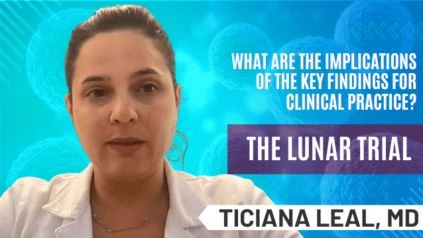In this informative video, viewers will gain valuable insights into the groundbreaking research discussed by medical experts Ticiana Leal, MD, from the Winship Cancer Institute of Emory University, and Allen Wilbanks. The discussion revolves around the implications of recent findings for clinical practice in the field of oncology.
Dr. Ticiana Leal begins by highlighting the significance of the study, emphasizing its novelty in demonstrating an improvement in overall survival for patients who have previously undergone platinum-based chemotherapy and are now being treated with immune checkpoint inhibitors (ICIs) as a first-line therapy. She underscores the importance of these findings as a potential paradigm shift in cancer treatment.
Dr. Leal then introduces an innovative approach to cancer treatment known as tumor treating fields (TT fields), which is non-invasive and delivered through a wearable medical device. She elaborates on how this technology works, with electric fields being delivered to the tumors via two pairs of arrays applied to the patient’s chest. The device, designed for continuous use for approximately 18 hours a day, is conveniently delivered to the patient’s home and comes with 24/7 phone support by a device technician.
Furthermore, Dr. Leal discusses the potential synergy between TT fields and immune checkpoint inhibitors. She highlights that in their study, they observed a higher magnitude of benefit when combining these modalities, and this approach was well tolerated by patients. This combination therapy offers an exciting avenue for enhancing cancer treatment outcomes.
Dr. Leal concludes by pointing out the need for additional research to explore the integration of TT fields with immune checkpoint inhibitors in the front-line setting and in patients with locally advanced non-small cell lung cancer who have undergone chemo-radiation therapy. She emphasizes that ongoing clinical studies in these areas will provide further insights into how these results can impact clinical practice and ultimately benefit cancer patients.
Stay tuned for more updates on this promising and transformative approach to cancer treatment.

